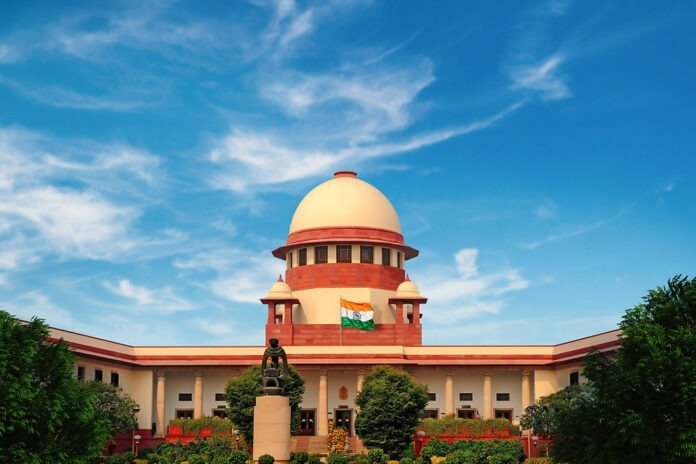The Supreme Court asks the Union if Bengali-speaking migrant workers were detained as foreigners merely due to their language use.
A PIL challenging the detention of Muslim migrants from West Bengal has prompted the Supreme Court to seek a detailed response from the Union government on allegations of discriminatory detention based solely on language.
Supreme Court Probes Language-Based Detention of Migrant Workers
In a significant development, the Supreme Court of India has raised pointed questions to the Union government regarding the alleged detention of Bengali-speaking migrant workers, particularly Muslims from West Bengal, on mere suspicion of being Bangladeshi nationals.
A bench comprising Justices Surya Kant, Joymalya Bagchi, and Vipul M Pancholi issued a notice while hearing a public interest litigation (PIL) challenging the practice of detaining individuals based on language profiling. The court has asked the Union to verify whether migrant workers were identified as foreigners solely for speaking Bengali.
The petitioners also filed an interim application seeking a direction to prohibit the deportation of any person without the proper ascertainment of their citizenship status. The bench, taking the plea seriously, observed that such allegations, if true, would have profound constitutional and human rights implications.
The Core of the Allegation
At the heart of the matter is a claim that several Bengali-speaking Muslims from West Bengal were rounded up under suspicion of being illegal Bangladeshi immigrants, without any conclusive proof regarding their nationality. The PIL asserts that in many cases, these individuals were detained merely because of their language, accent, or place of origin, not based on documentary evidence or investigative findings.
The PIL brings to light the rising number of detentions of Bengali speakers in states sharing borders with Bangladesh. The petitioners allege that a combination of religious and linguistic profiling is being used as a proxy for determining citizenship, which they argue violates both the fundamental rights to equality and personal liberty under Articles 14 and 21 of the Constitution.
Supreme Court’s Observation
Justice Surya Kant, during the proceedings, remarked:
“If language is being used as the only basis to brand someone a foreigner, it raises serious constitutional questions.”
Justice Bagchi, himself a native Bengali speaker, appeared particularly attentive to the implications of language-based discrimination, signalling the bench’s readiness to scrutinise whether such detentions reflect systemic biases or procedural lapses.
Legal Arguments Raised
Senior counsel representing the petitioners argued that the Foreigners Act, 1946, and related executive orders must be interpreted in a constitutional context, especially after the Supreme Court’s ruling in the Puttaswamy judgment, which emphasised the right to identity and dignity.
The petitioners highlighted the lack of uniform standards in identifying foreign nationals, and how that opens the door to arbitrary actions by local enforcement agencies. In this case, they claim, authorities bypassed due process, instead relying on subjective markers such as language, attire, and village names.
In response, the court has directed the Union to file a detailed reply clarifying its policies, detention protocols, and the criteria used in determining foreigner status, particularly in cases where no valid documentation is presented either way.
Citizenship and Identity: A Sensitive Nexus
The issue comes amid a broader national debate around citizenship, identity, and documentation, particularly after the implementation of the National Register of Citizens (NRC) in Assam and the enactment of the Citizenship Amendment Act (CAA) in 2019. Both have triggered concerns about statelessness, especially among minority groups lacking access to official records.
According to legal experts, language should never be a standalone indicator for immigration enforcement. “India is a multilingual, multiethnic country, and using language to question someone’s nationality is not just flawed—it’s dangerous,” said a senior constitutional lawyer, who spoke on condition of anonymity.
What Happens Next?
The Supreme Court’s notice to the Union marks a crucial step in examining whether administrative overreach has occurred in the name of border security. The Union government is expected to respond in the coming weeks. Meanwhile, the court has made it clear that no deportations should be carried out without a proper hearing and verification process.
This development is also expected to renew scrutiny on the practices of Foreigner Tribunals and state police in border states, especially Assam and West Bengal, where such cases have emerged with increasing frequency.
Watch the Full Hearing Coverage
Catch more details from The Legal Observer’s video coverage here: Supreme Court Hearing – Bengali Migrant Workers Case
For more updates, visit The Legal Observer and explore trending topics on National News, Views & Insights, and the full Wall of Fame.




